
Speed attends the 40/40 Club Pop-Up during Fanatics Fest at Jacob Javitz Center on August 16, 2024 in New York City.
Arturo Holmes/Getty Images
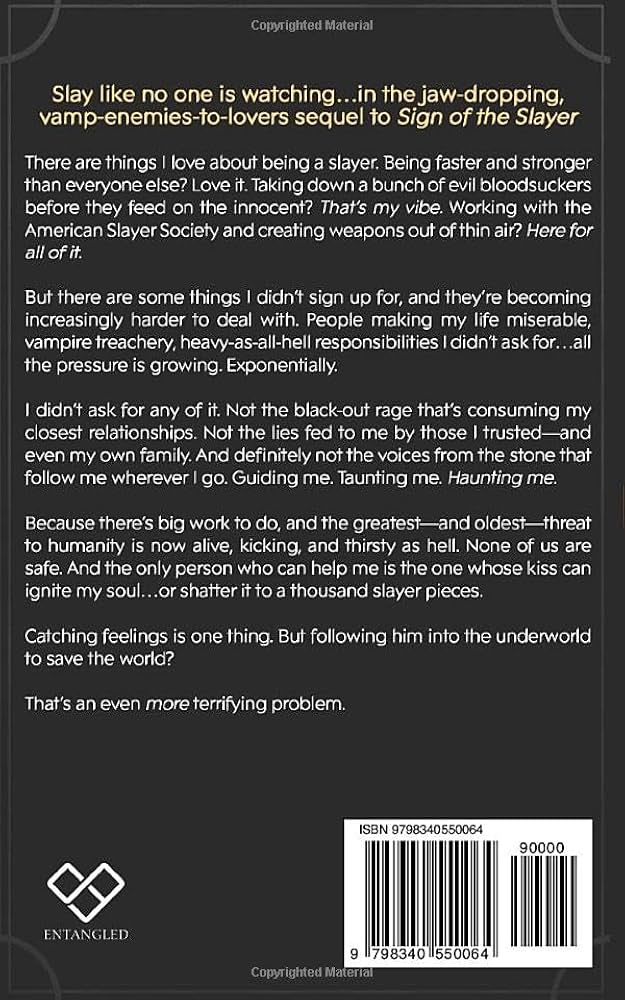

For example, there were only 82 pre-emptive kidney transplants done at Nucot in the 37 years between 1987, when the first kidney transplant was performed at NUH, and 2024, she said. Climbing the overhead bridge felt like a 100m sprint, and he had to take a break after playing tennis for 10 minutes, whereas, in the past, he could go on for at least an hour. Carl, the second of three children, said: “I was very shocked, as there is no history of kidney failure in my family.”Carl says he feels almost back to “100 per cent” now in terms of his energy levels, and life is so much better.Winners of the Singapore games are traditionally selected to take part in the World Transplant Games, which will be next held in August in Germany.There were no symptoms that made him think he was ill in the beginning. But life became more taxing as his kidney function deteriorated over time.Carl said: “I’m very grateful, as it’s a big sacrifice on his part.”Former national bowler Carl de Vries, who had a kidney transplant in January 2024, at his gym in South Bridge Road on March 18.ST PHOTO: JASON QUAHDr Hersharan suggested that he undergo a pre-emptive kidney transplant, where the transplant is done before the patient starts dialysis to remove the extra fluid and waste from the body when the kidneys fail. Carl, who runs a gym and is married with no children, had always led a very active life, playing various racket games, such as tennis and badminton, three times a week and bowling once a week. He was a gold medallist at the 2006 Asian Bowling Championships.The centre is at the National University Hospital (NUH).Dr Matthew D’Costa, who is the vice-president of the Society of Transplantation (Singapore), said the society and the transplant centres at NUH and Singapore General Hospital organise the Singapore games once every two years.More on this TopicHe said: “My kidney function is OK and everything is OK (after the transplant). But I feel tired more easily now.”

Previously, he had represented Singapore at the World Bowling Championship in 1999, as well as in other international tournaments.More than 70 competitors will be competing in seven games, such as track and field, table tennis, bowling and tennis.Mr Marc de Vries, 45, who is also a former national bowler, said: “He’s family. He’s my brother. I didn’t think of any other thing except to help save him.”The transplant was done in January 2024 at NUH. Their doctors say the brothers are doing well after the procedure.Marc, who is married and expecting the birth of his first child in August, said that he is back to playing golf three or four times a week, among the activities he loves. Now, about a year after the procedure, his brother Carl, 42, has recovered well enough to compete in April’s Singapore Transplant Games, where those who have had an organ transplant come together to compete in various sports.Join ST’s WhatsApp Channel and get the latest news and must-reads.In the two years before he had the transplant in January 2024, he felt tired all the time.However, pre-emptive transplants are uncommon in Singapore, as such transplants are only possible here when the patient has found a living donor. It also requires timely referral before the patient reaches end-stage kidney disease, Dr Hersharan said.SINGAPORE – When former national bowler Carl de Vries was diagnosed with kidney disease and needed a transplant, his brother Marc did not hesitate to offer him one of his. Dr Hersharan Kaur Sran, medical director of the Adult Kidney Transplantation Programme at the National University Centre for Organ Transplantation (Nucot), said that when she first saw Carl in 2023, he had advanced chronic kidney disease, which is just one stage before kidney failure. The brothers’ journey from sharing their love of sports to sharing a kidney transplant experience was an unexpected one.On April 5, Carl is competing at the Singapore Transplant Games – in badminton, instead of bowling, as he wants to challenge himself in a sport he is “not good” at.She said a pre-emptive kidney transplant offers patients the best outcomes, as the patients and their kidneys survive the longest period of time, compared with transplants done after the patient has been on dialysis for some time.In 2018, he underwent a routine health check and found that he had autosomal dominant polycystic kidney disease. The genetic disease is one where multiple cysts form in the kidneys, leading to kidney damage and failure.

Carl de Vries had always led a very active life, playing various racket games, such as tennis and badminton, three times a week and bowling once a week.ST PHOTO: JASON QUAHAnd even though they were “not the closest of siblings” before, his illness has strengthened their bond, Carl said.He had to go through a series of tests in Dubai and at NUH to ensure he was suitable. He does not have the genetic kidney disease that his brother suffered from. In 2024, Singapore saw a total of 103 kidney transplants – with 57 cases where the organ was donated by a living donor and 46 from a dead donor.A person has two kidneys and a healthy person can function just as well with just one kidney, after donating one.
Marc, who runs a tyre business and lives in Dubai, also came forward to be a donor.

In this countdown, we look back at the fastest recorded tennis serves of all time.
Service speed remains a dominant feature in the modern game and can become a player’s trump card out on the court.
With players getting stronger and cutting-edge technology in tennis racquets making leaps and bounds, serves today are faster than ever.
We take a look at the fastest serves ever recorded by men and women out on the tennis court.
Sam Groth – 263.4kph (163.7mph.)
Australian Sam Groth has the honour of having the fastest recorded tennis serve of all time.
The 6ft 4 Australian set the record during an ATP Open Challenger match in Busan, South Korea, in 2012 against Belarusian tennis player Uladzimir Ignatik.
Groths serve clocks in at a staggering 263.4kph (163.7mph).
Albano Olivetti – 257.5 kph (160mph)
Frenchman Albano Olivetti holds the record for the second-fastest serve ever recorded. The French tennis pro also remains the second person to break the 160mph serve speed barrier.
Olivetti’s serve came in 2012 at the challenger level during the Internazionali Trofeo Lame Perrel–Faip.
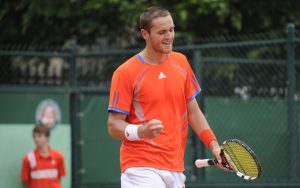
Albano Olivetti holds the second-fastest record serve on the tour.
John Isner – 253 kph (157.2 mph).
It would be hard not to include the American giant John Isner in this list. The 6ft 10 American is known best for his monster serves, which are delivered consistently throughout.
His monstrous serve is thanks in part to his stature. Isner clocks in as the third-tallest tennis player on the ATP behind the Croatian giant Ivo Karlovic and American young gun Reilly Opelka (both 6ft 11 inches). Ivo Karlovic currently holds the record for the fourth fastest recorded tennis serve.
Isner currently holds the third fastest serve in tennis. The Americans serve, clocking in at 253 kph (157.2 mph) during a 2016 Davis Cup tie against Bernard Tomic.
John Isner also holds the record for playing the longest match in Grand Slam history against Nicolas Mahut. During Wimbledon 2010, Isner beat Mahut in 5 sets: 6–4, 3–6, 6–7, 7–6, 70–68. The match lasted 11 hours and 5 minutes.
Isner’s serve is the fastest recorded serve in tennis, recognised by the ATP.
Georgina García Pérez – 220kph (136.7 mph)
Spaniard Georgina Garcia Perez holds the record for the fastest recorded tennis serve by a woman.
Perez clocked a serve of 200kph (136.7 mph) during the Hungarian Ladies Open in 2018.
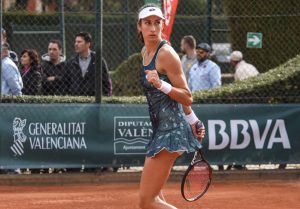
Georgina Garcia Perez holds the record for the fastest serve by a female.
A considered calculation of stature, technique, coaching, mechanics and good old practice is said to make the perfect concoction for a fast serve.
A direct correlation has been proven between the height of a player and power during a serve. Therefore, it is no coincidence that the top servers of the game are all giants by nature.
The trajectory of a serve remains ever important. Players who are 6ft 7 or above have the ability to hit the ball with a downward trajectory, whereas those who are under that height are unable to do so.
Modern technology has also greatly aided in the incremental increase of server power over time. The changeover from wooden rackets to today’s modern racket is a huge factor in determining serve power. Advancements in string technology and racket materials also play a huge part in determining a fast serve.
Other mitigating factors include court conditions. Faster serves are much more likely to happen on a hard court and during hotter temperatures, where there is less resistance to air density, translating to faster speeds.
When you compare the fastest tennis serve with other sports, you can see how fast it is.
Fastest Football shot – 114 mph by David Hirst in 1996
Fastest Baseball pitch – 105.1 mph by Aroldis Chapman in 2010
Fastest Cricket Bowling speed – 100.2 mph by Shoaib Akhtar in 2003
The average tennis serve speed differs between both men and women, as well as between pros and amateurs. Data shows us that for professional male tennis players, the average tennis serve speed is approximately 114 mph (on their first serve) and 93 mph (on their second serve).
For women, the average tennis serve speed clocks in at 98 mph (on their first serve) and 82 mph (on their second serve).
This data was recorded between 2002-2013, so bear in mind the average speeds have likely increased by a few miles per hour in the modern era, as racquet technology and athletes continue to evolve and adapt within the sport.
Check out Wired’s video, which covers the topic more in-depth.
Fancy writing for us: Apply to become a Sports Writer at the Sporting Ferret
If you liked this article, then why not check out:


During the Philadelphia stop of IShowSpeed‘s wild Speed Does America Livestream Tour, Meek Mill made waves by gifting the content creator with a dazzling Dreamchasers chain to induct the 20-year-old streamer into his iconic collective.
As the livestream unfolded, the chain’s diamond-encrusted dreamcatcher pendant shimmered in the spotlight, marking a symbolic moment of crossover between rap royalty and internet culture.
“IShowSpeed is officially part of Dreamchasers now,” Meek announced, granting Watkins Jr.—better known as IShowSpeed—an honorary seat at the table.

Speed attends the 40/40 Club Pop-Up during Fanatics Fest at Jacob Javitz Center on August 16, 2024 in New York City.
Arturo Holmes/Getty Images
The moment quickly became a generational handoff. Meek, 38, acknowledged the rise of creators like Speed, saying, “If you under 21, we was the ones that’s out here rocking and rolling chasing dreams. We got to follow y’all now.”
When Meek recalled dropping his hit “I’ma Boss” in 2012, Speed piped in with a humble confession: “I was seven.”
Meek replied, “I got to do my just due to get back to the young bulls.” He added color to the story with a dash of Philly flair. “I just got chased by three helicopters. 13 cop cars to get here. But we here, man.”

Meek Mill at Michael Rubin’s Fanatics Super Bowl Party at The Sugar Mill on February 08, 2025 in New Orleans, Louisiana.
Christopher Polk/Variety via Getty Images
Beyond the music-world handshake, Speed’s Philadelphia adventure played out like an energetic film reel. He demolished cheesesteaks at Pat’s—no onions, American cheese—then snagged a second round with Paul George at Jim’s Steaks.
He sprinted up the Rocky Steps at the Philadelphia Museum of Art (dragging thousands of livestream viewers along for the ascent), visited the Eagles’ NovaCare Complex, chatted with Howie Roseman and Saquon Barkley, played table tennis under LOVE Park, and even tagged along with some of Philly’s “Concrete Cowboys.”

IShowSpeed attends the FIFA Club World Cup 2025 group A match between Al Ahly FC and Internacional CF Miami at Hard Rock Stadium on June 14, 2025 in Miami Gardens, Florida.
Alekandra London/Getty Images
All that—on Day 6 of a nonstop, 35-day, 24/7 streaming marathon that launched on August 28 and spans 25 states, from California to New York to Texas.
See IShowSpeed receiving his Dreamchasers chain from Meek Mill below.


There is one player on this Kentucky basketball team who has the potential to turn himself into a lottery pick this season, and that is Tulane transfer Kam Williams. Last season, as a true freshman playing for the Green Wave, Williams averaged 9.3 points, 4.5 rebounds, 1.4 steals, 1.3 assists, and 1.1 blocks per game.
In 33 games last season at Tulane, he shot 48.5% from the field and 41.2% from three. The impressive part about his percentages from beyond the arc is that he did this on 4.6 attempts per game.
The 6’8 guard is a lights-out shooter and has the potential to be an elite three-and-D player in Mark Pope’s system. Williams talked to the media a few weeks ago, and during this interview, he discussed how he will model his game in the Pope system after what Koby Brea did last season.
If Williams can come anywhere close to Brea as a three-point shooter, this would be incredible for the Wildcats. Williams is already a mile ahead of Brea as a defender, so if he can shoot the three-ball well, he could even be an upgrade over last year’s sharpshooter.
NBA scouts are falling in love with Williams, and some mock drafts even have him going in the first round before even playing a minute in Lexington.
Coach Pope has talked a lot over the last few weeks about how Williams has looked like one of the best defenders on the team. He likely will come off the bench for the Wildcats, but if he is playing at a high level, it will be hard for Coach Pope to keep him on the bench.
Williams, based on his personality, has the swagger to make shots in big moments like we saw last season with Otega Oweh. A team that has a roster full of players with this type of mentality will lead to a lot of wins, and that is what Pope has.
It will be a special season for Williams, where he will enter as an underrated player in college basketball and leave as a first-round pick. His style of play makes him a perfect fit for what Pope is looking for, and he is going to make a lot of big shots for a basketball team that is capable of winning a national title.
The college basketball world will soon know who Kam Williams is when he is draining shots in Rupp Arena.


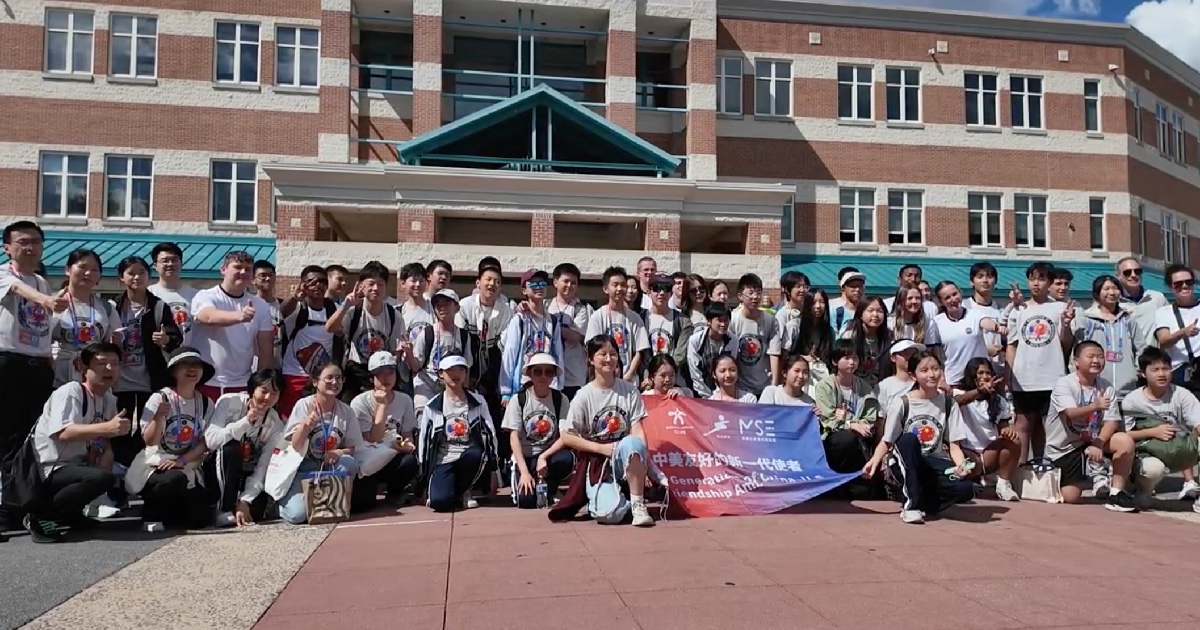
The mission of “pickleball diplomacy” continues for Montgomery County Public Schools (MCPS). After students went to China in the spring, Chinese students visited Montgomery County, including a visit to Walt Whitman High School in Bethesda on Tuesday.
46 students and nine adults traveled to the U.S. from the Nanshan school district in Shenzhen, which is one of the cities in China that the MCPS pickleball delegation visited back in April. About 30 MCPS students went overseas in April for a 12-day, 3-city pickleball tour in Shanghai, Shenzhen, and Beijing.
Over Labor Day weekend into Tuesday, MCPS and Chinese students went sightseeing together in Washington, D.C. and Maryland. Earlier in the day on Tuesday, they went on a tour of the U.S. Capitol. After visiting Whitman High School, the students headed to Pike & Rose for dinner and fun at Pinstripes.
“Pickleball diplomacy” mirrors the phrase “ping-pong diplomacy,” which describes the exchange of table tennis players between the U.S. and China in the 1970s.
“And we believe that through those positive relationships we build bonds… and in one little way, build relations between our two countries,” said MCPS Systemwide Athletics Director Dr. Jeffrey Sullivan on Tuesday.
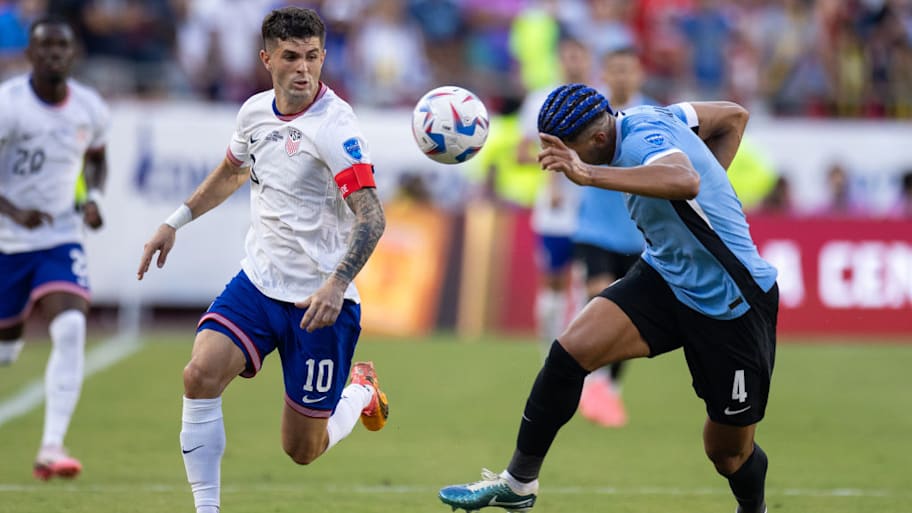


First Tee Winter Registration is open


Fargo girl, 13, dies after collapsing during school basketball game – Grand Forks Herald


CPG Brands Like Allegra Are Betting on F1 for the First Time
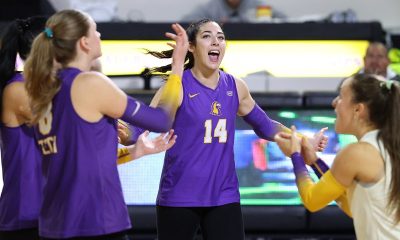

Volleyball Recaps – November 18


F1 Las Vegas: Verstappen win, Norris and Piastri DQ tighten 2025 title fight


Two Pro Volleyball Leagues Serve Up Plans for Minnesota Teams


Sycamores unveil 2026 track and field schedule


Utah State Announces 2025-26 Indoor Track & Field Schedule


Texas volleyball vs Kentucky game score: Live SEC tournament updates


Bowl Projections: ESPN predicts 12-team College Football Playoff bracket, full bowl slate after Week 14